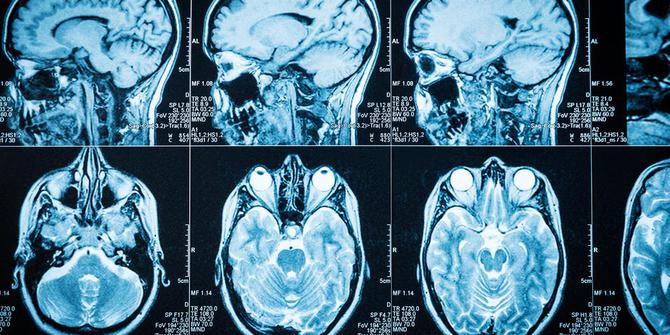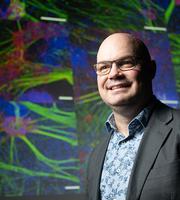Lab-grown human ‘mini-brains’ will be used to improve our understanding of dementia and traumatic brain injury, as part of the latest research by scientists from the University of Tasmania's Wicking Dementia Research and Education Centre.
There are 50 million people living with dementia globally. Without a medical breakthrough that figure is expected to rise with the rapidly ageing population.
Researchers at the Hobart-based Wicking Centre have been at the forefront of research into Alzheimer's disease and traumatic brain injury, which together are thought to affect over 700,000 Australians.
How are mini-brains developed and how will they assist researchers?
This latest, cutting-edge research involves the changing of skin cells – derived from tissue donated by Tasmanians - into pluripotent stem cells and then into nerve cells. These cells are then grown into rice-grain sized organoids, also known as mini-brains.
The mini-brains will help researchers study the way the brain responds to repetitive traumatic injury and the similarities between the condition and Alzheimer’s disease.
What might this research mean for the future?
In the long term, researchers hope to use them to screen for existing drugs that may be effective in treating dementia and traumatic brain injury. They are also aiming to investigate new therapeutic approaches to protect and regenerate the cells that make up the brain and nervous system.
Research lead, Associate Professor Tony Cook said the use of organoids had already been successful in many other areas of research and had promising potential when it came to Alzheimer’s disease and brain injury.
“The small, three dimensional organoids closely resemble the structure of the human brain opening up the possibilities for closer investigations into potential causes and treatments,”
Director of the Wicking Centre Professor James Vickers said the work represented a terrific opportunity to boost research towards an understanding of how human nerve cells responded to injury and neurodegenerative disease.
On a personal and philanthropic side, the research has been made possible through a generous donation by the Launceston-based Merridew Foundation, of $75,000 over three years.
Established by Launceston couple and University of Tasmania alumni George and Sarah Merridew and their two daughters, Nancy and Alison, the foundation was inspired by George’s own brother who fought a decade long battle with dementia.
“Our support of the human neuronal study acknowledges one of my brothers, an accomplished journalist, who had dementia from age 55 until he died 10 years later,” Dr Merridew said.
“Our family has received largesse of many kinds in past decades from many quarters: Australian and overseas. We are reciprocating to the broad community, if not to our original benefactors,” Dr Merridew said.
The Wicking Dementia Research and Education Centre is part of the University's College of Health and Medicine.
Banner image by Peter Mathew

